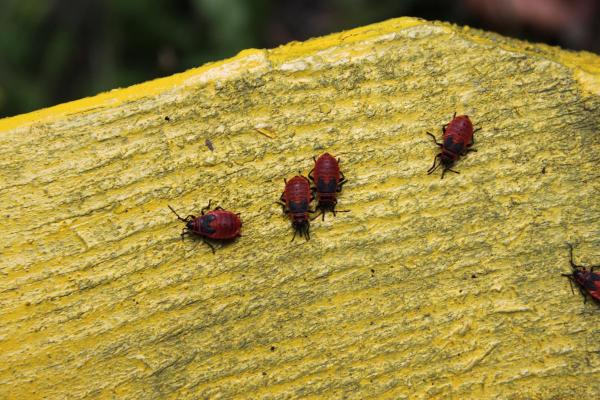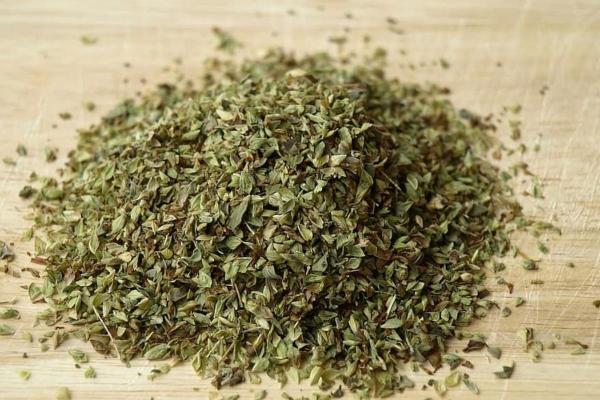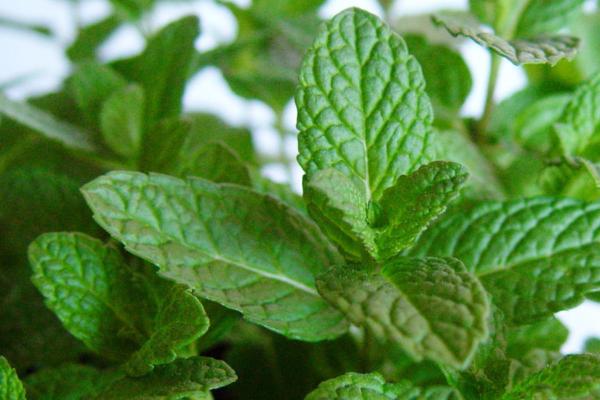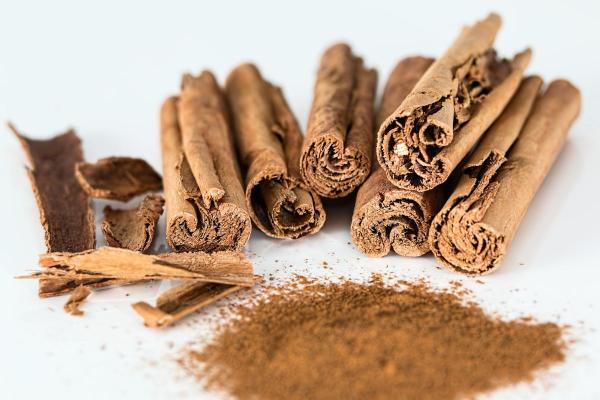Effective Scents to Repel Bed Bugs Naturally


Bed bugs, tiny nocturnal insects feeding on human blood, have become a prevalent nuisance in both residential and commercial settings. Their resurgence in recent years has led to an increasing number of infestations worldwide. These pests not only cause discomfort with their bites but also trigger allergic reactions in some individuals. Their ability to quickly multiply and spread from one place to another exacerbates the challenge of eradication.
The following AnimalWised article provides 8 effective scents to repel bed bugs naturally. These scents, derived from essential oils and plant extracts, can disrupt the behavior and sense of smell of bed bugs, thereby discouraging their presence and reducing the chances of infestation.
Importance of natural scents in repelling bed bugs
Bed bugs are small, parasitic insects that feed on human blood. They are nocturnal and often hide in mattresses, box springs, bed frames, and other furniture near where people sleep. Bed bug bites can cause itchy, red bumps that may resemble mosquito bites. In some cases, bed bug bites can lead to more serious health problems, such as allergic reactions or skin infections.
Bed bug infestations can be difficult to get rid of, and they can be very costly to treat. Therefore, it is important to take steps to prevent bed bug infestations from happening in the first place. One way to do this is to use natural scents to repel bed bugs.
While various methods exist to control these pests, the use of synthetic chemicals poses concerns regarding their environmental impact and potential health hazards. Natural scents, on the other hand, offer an eco-friendly and often safer alternative for deterring bed bugs.
These scents, derived from essential oils and plant extracts, can disrupt the behavior and sense of smell of bed bugs, thereby discouraging their presence and reducing the chances of infestation.
In the following section we will discuss some of the most effective natural bed bug repellents.
Geraniol essential oil
Geraniol oil is a natural essential oil that has been shown to be effective in repelling bed bugs. It has a strong, pungent smell that bed bugs find unpleasant. Geraniol oil can be applied to mattresses, box springs, bed frames, and other furniture near where people sleep to help deter bed bugs. It can also be diffused into the air around the bed to create a barrier against bed bugs.
Studies have shown that geraniol oil was effective in repelling bed bugs from human bedding. The study found that geraniol oil at a concentration of 0.5% was able to repel bed bugs for up to 24 hours.
Geraniol oil is a safe and effective way to repel bed bugs. It is non-toxic to humans and pets, and it does not leave behind any harmful residues. Geraniol oil is also relatively inexpensive and easy to find.
Clove essential oil
Clove essential oil is a natural remedy for bed bugs that has been shown to be effective in both repelling and killing bed bugs. The oil contains high concentrations of eugenol, an organic compound with a strong, pungent smell that bed bugs find unpleasant.
Eugenol is also found in other plants, but in smaller proportions. It has a variety of culinary uses, including as a local anesthetic, fungicide, and insect repellent.
When used as a bed bug repellent, clove oil can be applied to mattresses, box springs, bed frames, and other furniture near where people sleep. It can also be diffused into the air around the bed to create a barrier against bed bugs.
Studies have shown that clove oil is effective at repelling bed bugs for up to 48 hours. In some cases, it can even kill bed bugs on contact.
Ever wondered if dogs can carry bed bugs? Read our other article to learn more about the surprising link between dogs and bed bugs.

Citronella essential oil
Citronella essential oil is a natural remedy for bed bugs that has been shown to be effective in both repelling and killing bed bugs.
The oil is obtained from plants that belong to the genus Cymbopogon, and it is rich in citronellic acid, geraniol, and citronellal. These compounds have a repellent effect on bed bugs, and they have also been proven to have a repellent effect on other insects.
Citronella has a citrus smell, reminiscent of lemon, which is why it is also known as lemongrass. This strong smell, which may be pleasant to people, is not pleasant to some insects, so it can be used as a natural repellent for bed bugs.
Oregano and thyme essential oils
Oregano and thyme essential oils are natural remedies for bed bugs that can be used to repel and deter bed bugs. Both oils contain carvacrol, an organic compound that has a strong smell that bed bugs find unpleasant.
Oregano and thyme essential oils can be used to repel bed bugs by applying them to mattresses, box springs, bed frames, and other furniture near where people sleep. They can also be diffused into the air around the bed to create a barrier against bed bugs.
Oregano and thyme essential oils are generally safe to use, but it is important to use them in moderation. If you are pregnant or breastfeeding, it is best to avoid using oregano and thyme essential oils. Oregano and thyme essential oils can also be irritating to the skin, so it is critical to dilute them with water before applying them to the skin.

Mint
Mint plants, encompassing various species under the genus Mentha, are widely distributed across all continents. Known for their versatile applications, these plants find utility in cooking, confectionery, oral hygiene products, and notably as a natural repellent against bed bugs and other insects.
The characteristic scent and flavor of mint, like spearmint, derive from a compound known as carvone. This minty fragrance serves as an effective repellent against various insects, notably bedbugs and mosquitoes.
Carvone, the compound responsible for mint's distinctive smell, acts as an effective deterrent against bed bugs and mosquitoes due to its odor, making it unpleasant for these insects.
Mint's natural scent, driven by the carvone compound, offers an eco-friendly and safe approach to repelling bed bugs and mosquitoes, providing an alternative to synthetic chemicals. This natural method is notable for disrupting the sensory perception of these pests, making the environment inhospitable for infestations.
Curious about how bed bugs move? Learn more in our article exploring whether bed bugs have the ability to fly or jump.

Tea tree essential oil
Tea tree (Melaleuca alternifolia), native to Australia, yields tea tree essential oil. Extracted from this plant, a compound known as terpinen-4-ol boasts insecticidal properties. Beyond repelling insects solely through scent, it actively exterminates pests like bed bugs.
Applying the oil directly on these pests is the most effective method, albeit bed bugs might not always be easily accessible. The careful use of this oil is paramount due to its concentrated form, which can potentially cause skin-related issues.
Isopropyl alcohol
Sometimes, readily available compounds for bed bug repellents might be unavailable. In such cases, isopropyl alcohol or propanol can serve as emergency alternatives.
Their potent odor not only aids in repelling these insects but also has the potential to exterminate them upon direct contact. Spraying the bed or furniture with these alcohols, which have no lasting impact once dried, serves as a natural deterrent against bed bugs.
Utilizing isopropyl alcohol or propanol as a bed bug repellent offers a natural and accessible remedy, providing both repellent and exterminating properties against these pests.
Cinnamon
Cinnamon, a widely utilized plant in culinary preparations, boasts a spectrum of compounds effective against bacteria and fungi, impeding their growth. Its documented efficacy as an insect repellent, while lacking specific bed bug studies, presents an opportunity. Concentrated application on furniture, beds, or carpets might serve as a practical deterrent against these troublesome bugs.
While detailed bed bug-specific studies are limited, cinnamon demonstrates its effectiveness as an insect repellent. Concentrated application on furniture, beds, or carpets presents a practical method to potentially deter these bothersome pests.
Curious about how bed bugs affect cats? Read on to learn more about the interaction between bed bugs and cats.

If you want to read similar articles to Effective Scents to Repel Bed Bugs Naturally, we recommend you visit our Facts about the animal kingdom category.
- González-Morales, MA, Terán, M., & Romero, A. (2021). Behavioral Responses of the Common Bed Bug to Essential Oil Constituents . Insects, 12(2), 184. Available at: https://doi.org/10.3390/insects12020184
- Kowalska, J., Tyburski, J., Matysiak, K., Jakubowska, M., Łukaszyk, J., & Krzymińska, J. (2021). Cinnamon as a Useful Preventive Substance for the Care of Human and Plant Health . Molecules (Basel, Switzerland), 26(17), 5299. Available at: https://doi.org/10.3390/molecules26175299









